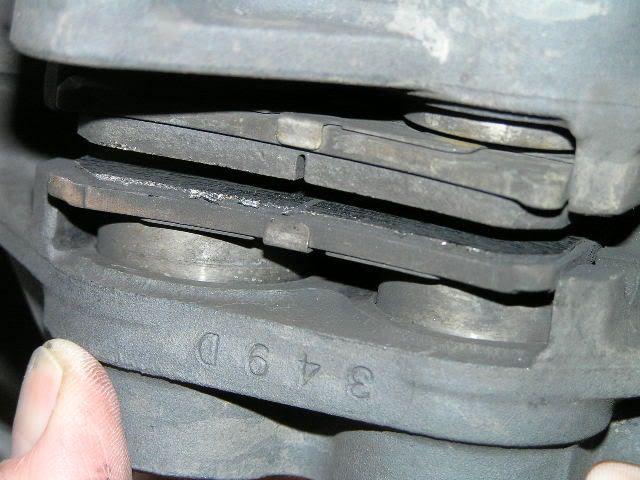G
Gryphon
Guest
From the first ride, I have been a little disappointed with the performance of the front brakes, they felt mushy and required a bit more force than my Concours. I tried bleeding them, but had no change. I took the bike in for it's 600 mile service and had them check the brakes specifically. They said they got a couple of bubbles out and the brakes did feel better, but still not that great. I changed the fluid, bled them again, no improvement.
This weekend I changed the tires, and while the calipers were off, I took the time to clean them up. Blocking one caliper with a piece of wood between the pads, I pulled the other calipers pads out and pumped the pistons all the way out. Sprayed everything with brake cleaner, then reseated the pistons. Put the pads back in, blocked them open, then did the same thing to the other side. Put everything back together and now the brakes are working better than they ever have. I did ~150 miles today to scrub the new tires in and am really enjoying how light a touch is required to operate them, and how good they feel.
I have always done this type of caliper cleaning during a tire change, read about it years ago on another bulletin board, it has never changed the operation and feel of the brakes before.
Is there anyone else that has had a similar experience?
This weekend I changed the tires, and while the calipers were off, I took the time to clean them up. Blocking one caliper with a piece of wood between the pads, I pulled the other calipers pads out and pumped the pistons all the way out. Sprayed everything with brake cleaner, then reseated the pistons. Put the pads back in, blocked them open, then did the same thing to the other side. Put everything back together and now the brakes are working better than they ever have. I did ~150 miles today to scrub the new tires in and am really enjoying how light a touch is required to operate them, and how good they feel.
I have always done this type of caliper cleaning during a tire change, read about it years ago on another bulletin board, it has never changed the operation and feel of the brakes before.
Is there anyone else that has had a similar experience?



































![fjackets Real Lambskin Leather Biker Jacket — Quilted Cafe Racer Zip Up Moto Leather Jackets For Men | [1100085] Johnson Brown, XL](https://m.media-amazon.com/images/I/41I7Pm1f+vL._SL500_.jpg)










































